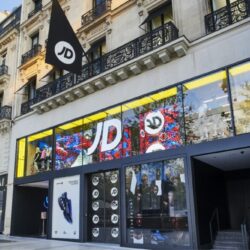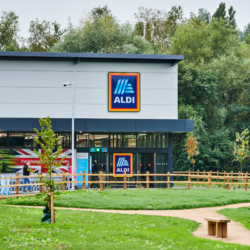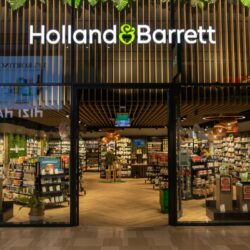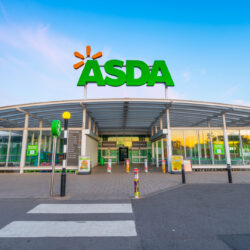Retail Gazette and Octopia roundtable brings retailers together to discuss the rise of the online marketplace and whether retailers should build their own.
B&Q is doing it. So are Superdrug, Next, Mountain Warehouse, and several others – while Boots will be following in their footsteps later this year.
The ‘it’ in question is running their own online marketplace, and the rapid rise in traditional retailers adopting a marketplace model to broaden their inventories and expand into new categories marks a shift in the fundamental structure of e-commerce.
Just because retailers are following this route, it does not mean it is easy to get right. So, on 4 April 2023 at Seacontainers in London, Retail Gazette gathered together a wide range of retailers and brands to discuss the challenges and opportunities the industry faces when exploring new online business models.
Joining the discussion were representatives from Asos, B&Q, Fiver London, ghd, Holland & Barrett, Marks & Spencer (M&S), Next, River Island, and Sainsbury’s. The event ran in partnership with Octopia, a technology company which helps retailers build their own marketplace, as well as source sellers to list on these sites and support with fulfilment.
An in-depth discussion covered a lot of ground – from why marketplaces allow retailers to experiment with new products to the importance of adopting various different business models to maintain pace with an ever-evolving retail and consumer landscape.
Appetite grows for mixed-model retailing
Several retailers spoke of the growing need in retail to develop “mixed-model” operations, in order to survive and thrive in a tough trading environment. But is was deemed crucial that brands sold via a retailer’s marketplace who do their own shipping need to be at least “reasonably aligned” in terms of customer proposition and delivery capability.
Next Beauty CEO Amanda Scott said: “It is important to grow with third-party brands via various operating models.
“The key challenge is making the customer delivery proposition good enough and in line with your own brand positioning.”
Sarah Eldridge, director of wholesale at River Island, which currently sells its goods on several third-party marketplaces such as Next and Asos, commented: “There is an appetite at River Island to have a mixed model approach.
“We know we are a wanted brand and that there are customers out there to be reached – so we need to uncover what operating models are required to maximise that position, in a profitable way.”
From John Lewis to M&S, and from Next to Asos, there are multiple examples of retailers revamping their operating models in recent years to enable them to partner with new brands and provide different ways for customers to find complimentary brands via their channels.
In the last few years when retail has faced crisis after crisis, including the pandemic and supply chain disruption which negatively impacted inventory management across borders, having a multi-model operating model has been deemed an advantage.
One roundtabler said having a marketplace model and “the ability to go into other brands’ stock” is a useful position to be in, while another suggested running a marketplace model alongside traditional e-commerce presents “a great opportunity” to expand sales in the form of “bundles of goods” containing own and third-party brands.
This latter point is particularly important in challenging economic times such as those the industry currently faces when attention often turns to “customer retention rather than acquisition”, the retailer continued.
One retailer that has launched a marketplace of its own told the other delegates the new model allowed the business to experiment and expand its product range. Beforehand “agility wasn’t a strong point of our business”, they added.
Battle for brand voice
Retailers around the table were, in the main, confident that an online marketplace model would work for their business. Indeed, in the case of Asos, B&Q, M&S, and Next this structure has already been deployed.
But one key challenge expressed in the discussions was that of maintaining brand voice and retailer uniqueness as a growing number of businesses start to broaden their inventories into new categories and products not typically associated with them. Having a multi-model operating model can cause challenges with customer care ownership, for example.
When building out a marketplace or an e-commerce in general, “there needs to be something that is uniquely yours”, said one roundtable guest.
As a growing number of retailers decentralise their inventories and adopt marketplace-style models there is a danger that customers will be able to find the same product on more retail channels than ever too. But there are tactics to avoid that becoming a problem, according to the event attendees.
“The differential comes in the creative and the images used to sell,” explained one.
“In such a situation, personalisation and use of technology to help customers feel like they are receiving an experience tailored to their needs becomes more vital,” added another retailer.
When building out a marketplace it would be prudent to adopt a “test and learn approach”, according to another roundtabler. “You must find product lines that are complimentary to your core offering, too.”
Online marketplaces – the future
The roundtable ended with several retailers suggesting it was legitimate to claim online marketplaces are the future of e-commerce, but for true success they need to be “personalised marketplaces with a unique experience” and they should be used to improve retailers’ “agility” and to learn what customers like.
Paul Garcia, vice president of global sales at Octopia, who joined the roundtable discussion, said: “Focus from retailers on online marketplace makes so much sense.
“They can sell on the major third-party platforms, but having their own platform as well brings greater visibility about customer behaviour as well as significant sales growth opportunity through product range enhancement. It is also important to say it is not easy finding sellers – Octopia can certainly support retailers with that.”
He added: “Retailers are concerned about maintaining their brand and their differentiation as more of them expand their ranges and decentralise their operating models. That is of course an vital consideration, but my question to them is ‘what if they don’t have the products that everyone else has?’”
It is certainly true that consumers increasingly like to shop on marketplaces where they can buy a range of items in one go. Research published in 2022 by OC&C Strategy Consultants suggested that marketplace growth will continue at 15% per year in the western world and become as large as direct e-commerce by 2025, when it will account for circa 45-50% of all online spend.
“It is a model that works, and traditional retailers are building their own marketplaces as part of an array of operating models required for winning customer spend in what continues to be an increasingly competitive industry,” argued Garcia.
Look out for a Retail Gazette and Octopia webinar on the growth of online marketplaces, scheduled for Tuesday 16 May
Click here to sign up to Retail Gazette‘s free daily email newsletter


















